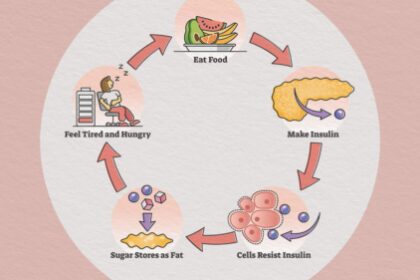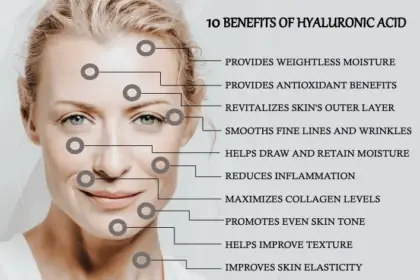In the pursuit of better health, individuals often turn to vitamins and supplements as a means to bolster their well-being. Among these, Vitamin A stands as a cornerstone, lauded for its crucial role in maintaining healthy vision, skin, and the immune system.
However, what many are unaware of is that despite its numerous benefits, an accidental overdose of Vitamin A can lead to a series of alarming side effects. Ranging from nausea and dizziness to more severe consequences like liver damage and, in extreme cases, even death, the consequences of inadvertently consuming excessive amounts of this seemingly benign nutrient are indeed grave.
In this comprehensive guide, we delve into the often underestimated dangers of Vitamin A over-consumption, shedding light on the signs, symptoms, and preventive measures that can help safeguard against its potential pitfalls. It’s time to demystify this ubiquitous vitamin and understand the fine line between its benefits and the lurking dangers that await the unwary.
The Importance of Vitamin A to Human Health:
Vitamin A plays a crucial role in maintaining various aspects of human health. One of the most well-known functions of Vitamin A is its role in supporting vision. It is an essential component of the pigment rhodopsin, which is found in the retina of the eye. Rhodopsin is necessary for low-light and color vision, making it vital for both day and night vision.
Additionally, Vitamin A is crucial for a healthy immune system. It helps maintain the integrity of the skin and mucous membranes, which serve as the body’s first line of defense against pathogens. It also aids in the production and functioning of white blood cells, which are essential for immune responses.
Furthermore, Vitamin A is involved in the production and maintenance of healthy skin cells. It helps regulate the production of sebum, an oily substance that moisturizes the skin and prevents dryness and flakiness. The nutrient is also crucial for cell growth and differentiation, particularly during periods of rapid growth, such as childhood and pregnancy. In pregnant women, it is essential for the development of the fetus, particularly for the formation of the eyes, heart, and other vital organs.
Vitamin A’s influence doesn’t stop there. It also plays a role in bone health by supporting the process of bone remodeling, which is essential for maintaining strong and healthy bones. Additionally, Vitamin A, in the form of retinol, acts as an antioxidant, helping protect cells from damage caused by free radicals, which can contribute to aging and various diseases.
Lastly, Vitamin A is involved in regulating the expression of certain genes, helping control various physiological processes, including cell differentiation and proliferation.
The Risks of Vitamin A Overdose:
While Vitamin A is undoubtedly essential for good health, it’s important to note that excessive intake can lead to toxicity and adverse effects. A deficiency in Vitamin A can lead to a range of symptoms, which can vary in severity.
These symptoms may include night blindness, dry eyes, Bitot’s spots, corneal ulcers, impaired immunity, delayed growth in children, skin issues, respiratory infections, and reduced resistance to infections, among others.
Avoiding Vitamin A Overdose:
Avoiding a Vitamin A overdose involves being mindful of your intake from both dietary sources and supplements. Maintaining a balanced and varied diet that includes a wide range of fruits, vegetables, and other food groups ensures you get a mix of essential nutrients without relying heavily on any one source. Familiarize yourself with the recommended daily allowances (RDAs) and upper intake levels (ULs) for Vitamin A. This information can be found on dietary guidelines provided by health authorities.
When using supplements or fortified foods, carefully read labels to understand the Vitamin A content per serving. Avoid high-potency supplements unless specifically recommended by a healthcare professional.
It’s important to avoid taking high-dose Vitamin A supplements without medical supervision, as these are typically not necessary for the average person and can lead to overdose if not carefully monitored. Cod liver oil is exceptionally high in Vitamin A. If you take it as a supplement, do so under the guidance of a healthcare provider.
If you’re considering taking Vitamin A supplements, especially in higher doses, consult a healthcare provider or registered dietitian. They can provide personalized recommendations based on your specific health needs. Pregnant individuals should be cautious about consuming excessive Vitamin A, as it can lead to birth defects.
Consult a healthcare provider for guidance on appropriate intake levels during pregnancy. Some food products, like cereals and dairy alternatives, are fortified with Vitamin A. While this can be beneficial, be mindful of the total intake from all sources.
Organic Elderberries Are Packed With Bioavailable Vitamin A And Taste Delicious! Click Here To Check Out Starwest Botanicals Organic Elderberries
The Recommended Dietary Intake (RDI) of Vitamin A varies depending on factors such as age, gender, and life stage. It’s important to note that the RDI for Vitamin A is often expressed in micrograms of Retinol Activity Equivalents (RAE). This is a unit that takes into account the different forms of Vitamin A found in various foods.
What Are The General Recommended Daily Intakes For Vitamin A:
- Infants (0-6 months): 400 micrograms RAE per day.
- Infants (7-12 months): 500 micrograms RAE per day.
- Children (1-3 years): 300 micrograms RAE per day.
- Children (4-8 years): 400 micrograms RAE per day.
- Males (9-13 years): 600 micrograms RAE per day.
- Females (9-13 years): 600 micrograms RAE per day.
- Males (14-18 years): 900 micrograms RAE per day.
- Females (14-18 years): 700 micrograms RAE per day.
- Adult Males (19 years and older): 900 micrograms RAE per day.
- Adult Females (19 years and older): 700 micrograms RAE per day.
- Pregnant Teens (14-18 years): 750 micrograms RAE per day.
- Pregnant Adults (19 years and older): 770 micrograms RAE per day.
- Breastfeeding Teens (14-18 years): 1,200 micrograms RAE per day.
- Breastfeeding Adults (19 years and older): 1,300 micrograms RAE per day.
It’s worth noting that these are general guidelines, and individual needs may vary. For example, individuals with specific health conditions or dietary restrictions may have different requirements. Also, certain populations, like pregnant or breastfeeding individuals, may have higher RDI due to the increased demands of pregnancy and lactation.
Conclusion:
Maintaining optimal health requires a balanced approach to nutrition, and Vitamin A is undeniably a crucial component of this equation. While its benefits are manifold, it’s imperative to exercise caution to avoid the potentially dire consequences of overdose. By being aware of the signs, symptoms, and preventive measures discussed in this guide, individuals can navigate the path towards optimal health with confidence.
Striking the right balance in Vitamin A intake not only ensures the preservation of vital bodily functions but also underscores the importance of informed and mindful dietary choices. In the quest for wellness, knowledge truly is power, and armed with this understanding, individuals can forge a path towards a healthier, more vibrant future.






